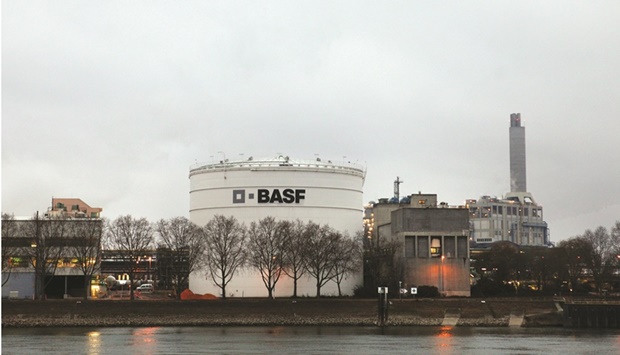Europe’s biggest industrial firms have been banking on spring to bring down soaring energy costs. Those hopes faded this week as Russian tanks rolled into Ukraine.
Smelters and chemical factories across Europe were already struggling before the invasion sparked another jump in gas and electricity prices. Now, a growing list of companies including Europe’s biggest chemicals maker BASF SE are warning the energy crisis will keep hacking away at their bottom lines for the foreseeable future.
“Energy prices will stay at a high level and they won’t go back to normal soon,” said Martin Brudermueller, BASF’s chief executive officer.
BASF already took an €800mn ($900mn) hit from rising gas prices in the fourth quarter, and the situation could worsen if the US and Europe broaden sanctions against Russia, which supplies more than 40% of the European Union’s natural gas.
“It would be very difficult to replace Russian gas with liquefied natural gas from elsewhere,” Brudermueller said.
BASF isn’t alone. The energy-intensive metals industry is also struggling. Aluminium Dunkerque Industries France, Europe’s largest aluminium smelter, had planned to ramp up curtailed production after the French government helped shoulder as much as 80% of the cost burden. But the renewed surge in prices following Russia’s invasion of Ukraine has put the plan on ice, a labour union official said.
Meanwhile, Germany’s Trimet Aluminium SE said manufacturing the metal isn’t economical at present energy prices. And building-materials giant HeidelbergCement AG on Thursday warned that profits are likely to suffer from rising energy costs over the coming months.
European energy prices surged in the autumn, tipping smaller firms across the continent towards bankruptcy and prompting others to temporarily cut production at unprofitable factories. The continent’s larger industrial firms typically purchase their energy in monthly tranches, a strategy that initially enabled them to absorb the price shocks and more gradually pass them to consumers.
While mild weather eased gas prices off record highs hit December 21, benchmark month-ahead prices have traded at nearly four times the five-year average of €90 per megawatt hour over the past five months.
Gas prices have been highly volatile since Russia’s invasion. Benchmark month-ahead contracts surged 60% to an intraday high of €143 per megawatt hour on Thursday, before falling back to trade around €90 per megawatt hour late Friday.
Wolfgang Hahn, owner of Energy Consulting GmbH that gives energy advisory services to 2,500 companies in Germany, said there’s growing concern about energy supplies later in the year.
“Many companies are already looking forward to next autumn and winter and are wondering whether the gas storage facilities will be filled again,” Hahn said. They’re also worried “whether an appropriate alternative to Russian gas will be found, or whether gas imports from Russia will be completely interrupted.”
In the days since hostilities began in Ukraine, prices have spiked for forward contracts for warmer months when consumers typically use less energy to power and heat their homes. The impact of sanctions, Germany’s decision to halt the Nord Stream 2 pipeline, and uncertainty around Russian gas supplies that flow through Ukraine are expected to keep prices elevated over the coming months.
“Firm supplies through Ukraine and NS2 are needed to balance the European gas market and rebuild depleted storage levels,” Rystad Energy analysts said in a note.

The logo of BASF seen on a storage tank at the company’s plant in Ludwigshafen, Germany. A growing list of companies including BASF are warning the energy crisis will keep hacking away at their bottom lines for the foreseeable future.
